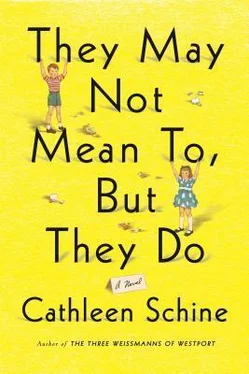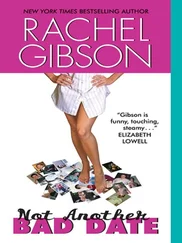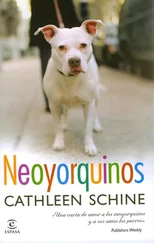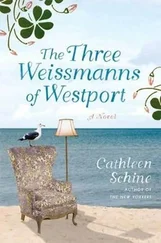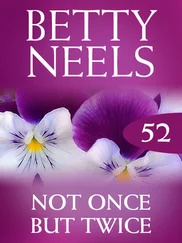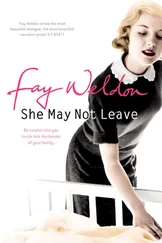She wondered what her life would have been like if she’d married Karl instead of Aaron. She probably would never have had the career she’d had. It would not have been necessary. That would have been a loss. On the other hand, there would have been enough money for them to survive without her scrabbling for work. What a luxury, not to worry about money. She wondered if anyone really had that luxury.
“I’ll miss you,” she had said to Karl before leaving. She touched his old hand with her old hand. And when she’d said it, she didn’t realize how true it was. She missed him already. She could see his earnest eyes, his face opening up into a smile. She could feel his close-shaved cheek as she gave him a kiss goodbye. His cheek was soft, old, but it was new, too, unfamiliar, exciting. Maybe his poor dead wife was right, maybe it was better to let sleeping dogs, dead dogs, lie. It was enough to lose Aaron, to miss Aaron. She didn’t need to miss Karl, too. She was too old. She was too tired.
And now at least she was not alone. She was surrounded by the ones she loved. Although they made so much noise. Coco was already banging pots and pans around. Daniel was bumping suitcases up the stairs. The girls were screaming, and Molly was somehow talking to Freddie on the computer she’d brought with her.
But this was the place Joy knew best. She had grown up in the city and lived her entire adult life in the city, but this was where she belonged. The air was her air, as if it had been made for her, air that revived her and soothed her. The light was her light, changing in ways she knew and anticipated and loved. There was nowhere on earth in which she felt more at home. Even the sounds seemed to welcome her, to know her, to greet her. There had been rain and the stream was high and rushed noisily by. A finch sang its chortling musical song. She listened for the cows from the pasture across the road. She heard something low and rumbling, not cows. A tractor plowing a far-off field.
But it was not a tractor, and it was not far off. The sudden crash of rocks reached her, the beeping of heavy machinery backing up, muffled shouts, a jackhammer.
“What are they doing, Grandma?” Cora asked. She climbed onto the roof of the car and looked across the street. “They’re digging up rocks with a steam shovel.”
Gatto jumped into Joy’s arms.
Molly stormed out of the house. “What the hell is going on?” she said, and stomped down the hill, yelling, “Hey! Hey!”
“Well, we’re not building this swimming pool for the cows,” the foreman said cheerfully when they had all followed Molly to the field.
Joy heard herself say with what she knew was irrelevant conviction, “I am a widow.”
The foreman was named Bill. He reached over to pet Gatto and Joy felt the growl building in the dog’s chest, but to her disappointment it quickly shifted into a friendly whimper and he licked the foreman’s hand.
“How long will you be doing this?” Molly said.
“And what exactly are you doing?” Daniel asked.
“Well, let’s see, building a road, of course, and houses. Nine. So yeah, we’ll be here awhile, I guess. Beautiful houses, pretty high-end. Pools, too. Hey, little puppy, what’s your name?”
There was an unpleasant discussion that night. Daniel said, “With this development going up, someone might actually want to buy our house.”
“This is my ancestral home,” Joy said. “And yours.”
He explained again that Joy was running out of money. “Anyway, our ancestors lived in shtetls.”
Molly told him he was morbid. Joy said perhaps she would die and solve everyone’s money worries. All of this had to be conducted in whispers, because the girls were asleep.
“Let it go,” Coco said to Daniel in bed that night. “Give your mother a summer off.”
“I’m just trying to be responsible.”
“Let it go.”
* * *
“Where’s Aunt Freddie, anyway?” Cora asked at breakfast.
Aunt Freddie always slipped her a crisp dollar bill when she saw her.
“You’re a miser,” Ruby said.
“I’m not.”
“It means you love money.”
“Oh. Then I am. So what?”
“Why do you love money?” Joy asked.
“I collect it.”
Joy nodded. Better than fingernail clippings. Molly had collected fingernail clippings.
Molly grabbed Cora and kissed her. She was touched that Cora thought to ask where Freddie was. Sometimes she wondered if any of them remembered Freddie existed when Freddie wasn’t standing directly in front of them. Particularly Joy. Since Molly’s divorce, her life had become less and less real to her mother. Molly knew her mother was proud of her, knew Joy liked Freddie, but she knew also that she existed in a different way for her mother now, that the new reality was perceived dimly, as if the lights had gone out when she got divorced and her mother had never turned them back on. Molly plus a husband plus a child to raise had made sense to Joy. That was a discernible unit, that family of three. But Molly and Freddie in California? That was not a unit. It was an absence.
“I wish Aunt Freddie were here,” she said to Cora.
“Yeah, why isn’t she?”
“Good question. Why isn’t she?” Daniel asked, as if this were the first moment he’d noticed her absence.
“Daniel, she’s with her father,” Coco said. “All her sisters and brothers are coming to L.A., remember?”
“That Freddie is a fine, fine person,” said Joy.
Molly looked at her in surprise.
“I could see that when I stayed with you. A fine person.”
Molly smiled, a grin really. “Thank you, Mommy.”
“Why are you thanking me?” Joy asked fondly. “I didn’t say you were a fine person. You’re lucky Freddie puts up with you.”
Freddie let her father open the barbershop door for her, discreetly helping him. It was the third time they had been to that barbershop in three days.
“Mr. Hughes! Good to see you.”
“I need a haircut, my good man.”
The barber caught Freddie’s eye. She nodded slightly.
“Okay, Mr. Hughes! Sit right here.”
Ever since Freddie told her father about the impending visit of his four other children, he had been insisting he needed a haircut. The insistence continued, the two haircuts in the last two days notwithstanding.
The barber was a stolid middle-aged man whose father had cut Duncan’s hair until his retirement ten years ago.
“How’s your father?” said Duncan.
“The same. How are you?”
“Still here.”
They’d had the same exchange the day before and the day before that.
“Thanks, Mel. Dad was really eager to come in,” Freddie said.
“Oh yeah, we’re always happy to see Mr. Hughes.”
Duncan hummed a little, then faded away for a moment, then caught his own eye in the mirror. “Hello, handsome.”
“You do look sharp, Dad.”
He was pleased, and as they drove back to Green Garden, he read the signs they passed out loud as if they were lines in a dramatic play. It had always been one of his car trip games. He seemed like his old self and Freddie said nothing, not wanting to break the spell.
Sometimes, Joy almost missed the red tricycle.
“Maybe I’ll come with you,” she said when Coco and the girls set off to the market.
But the market was about to close and they could not wait for Joy to get herself together to go. No one asked her to do errands at the house Upstate. No one asked her to do anything at all. She could have been another cushion on the old sagging couch, she thought, as everyone came and went, busy with things that had once been the things that had busied her, though even the cushions, covered by her mother’s petit point, were more useful than she was. No one leans on me, she thought.
Читать дальше
